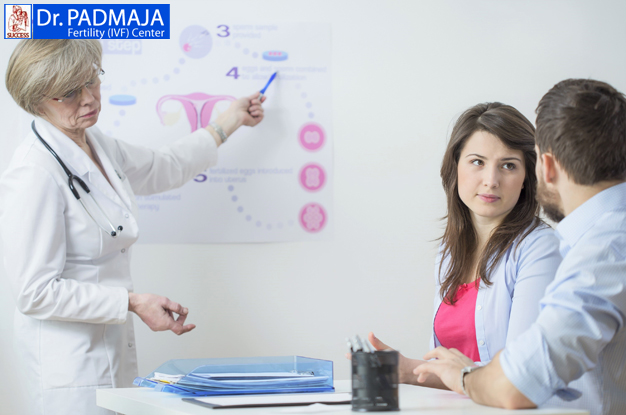Understanding Endometriosis
Endometriosis occurs when the uterus lining, also known as the endometrium grows outside the uterus. This results in a scar tissue and adhesion. This condition destroys tissues and even impedes the organs leading to dysfunction of reproductive organs that leads to infertility.
In this condition, women experience cramps in the pelvic region, excessive blood flow during the cycle, and most importantly, prevents women from conceiving.
At this time, IVF can be administered helping women to conceive. This process combats infertility and eliminates the risks of endometriosis and safely enables a successful pregnancy.
This condition of endometriosis is present in the system and either the endometrial cells or the immune system produce biochemical substances like prostaglandins that prevent a person from conceiving.
Scarring tissues because of endometriosis makes organs including the reproductive organs stick to one another and disfigures them. This also prevents the organs from functioning properly and it becomes difficult to conceive.
Must Read: Why IVF gives twins
Finding a cure
There are plenty of best IVF clinic for endometriosis where you can get IVF treatments endometriosis. But first let’s find out how Endometriosis and IVF success stories place a good news that IVF fertility treatment can cure this and you can safely deliver a newborn.
With the help of medication and surgery, treatment for endometriosis is given and doctors will also check the signs and symptoms to help you become pregnant.
Initially, doctors recommend a conservative treatment approach and this is followed by surgery if initial treatment fails.
There’s also pain medication such as ibuprofen, Advil, Motrin IB and Noproxen Sodium available to ease painful menstrual cramps.
Further hormone therapy in combination with pain relievers if you’re not trying to get pregnant. Supplemental hormones are sometimes effective in curing the pain of endometriosis.
Sometimes, the rise and fall of hormones during menstrual cycle causes endometrial implants to bleed, thicken and break down.
In this way, hormone therapy is not a permanent cure for endometriosis. There are chances of returning of the symptoms after halting the treatment.
Success with IVF treatment
Endometriosis does not stop you from getting IVF treatment under the supervision of fertility specialists. Fertility treatment ranges from the point of stimulation of ovaries to making more eggs to in vitro fertilization. Whichever treatment is appropriate and right for you, highly depends on your situation.
The pregnancy success rates with IVF treatment is achieved greatly and with endometriosis, there may be a need to undergo intra-uterine insemination with a partner’s or a donor’s sperm. In a study, it was found that the success rate of insemination in women with endometriosis is nearly about half that of other women.
Women who have mild endometriosis and who undergo intra-uterine insemination and controlled ovarian hyperstimulation are more likely to conceive than those who put efforts trying to conceive without such help. Further, stimulating the ovaries with artificial follicle stimulating hormone results in higher pregnancy rates.
With IVF treatment women can get pregnant and especially if the woman’s tubes are not functioning properly, or the partner is also infertile or other treatments have not been successful.
There are many good clinics that offer IVF fertility treatment with endometriosis and there are endometriosis and IVF success stories.
Symptoms of Endometriosis
What are the symptoms that tell you about endometriosis? These are:
- Chronic pain during menstruation
- Pelvic pain
- Infertility
- Chronic fatigue
- Pain during defecation
- Blood in stools and urine
- Bloody coughs
The impact of endometriosis on fertility may differ in every patient and it can also cause mechanical changes – tub ovarian relationships due to scarring or adhesions.
Conclusion
The American Reproductive Society introduced a grading system which allows specialists to estimate the severity of the condition. In this system, four stages of the condition are distinguished; classification depends on the amount, size, location, depth, and adhesions. A laparoscopy is required to measure all of these parameters.
Laparoscopies are sometimes called “minimally invasive surgeries” – they involve creating very small incisions, no larger than 15 millimetres, in order to insert a small surgical camera. In cases of endometriosis, a laparoscopy is not just a diagnostic technique. In mild to moderate cases, the surgeons can treat the condition at the time of diagnosis, without the need for a separate surgery. Unfortunately, this does not extend to more serious cases of endometriosis which require more advanced surgical techniques.

